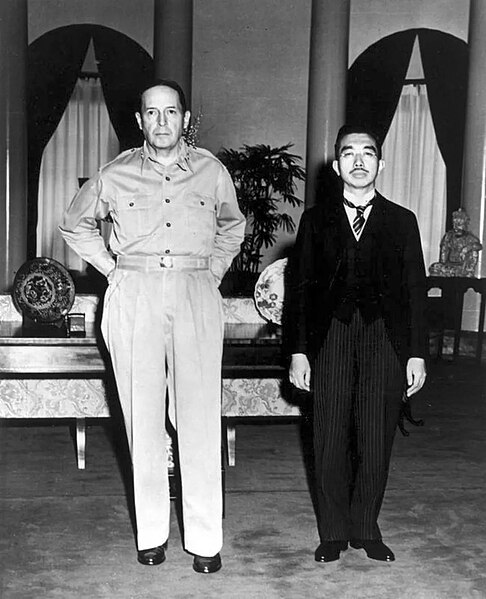 |
| General Douglas MacArthur and Emperor Hirohito (Image: Wiki Commons) |
By Franz-Stefan Gady
In hindsight, exonerating Japan’s Emperor was a grave mistake.
Given the controversy surrounding Japanese Prime Minister Shinzo Abe’s statement on the 70th anniversary of the end of World War II, it is perhaps worthwhile to briefly reexamine some of the root causes that lead to conservative Japanese revisionism. (Yesterday, I gave an interview to Asia News Weekly on the same subject.)
While it is of course reductionist to focus on one single cause for Japanese conservatives’ difficulties in dealing with Japan’s wartime past, I would like to briefly discuss the American decision to exonerate Hirohito, the 124th Emperor of Japan, and the entire imperial family for the policies and actions of the Empire of Japan during the 1930s and 1940s.
In short, this decision was a grave mistake and my reasoning is simple: If the commander in chief of Japan’s imperial forces and the most revered personality by all Japanese was absolved from any wrongdoing during the war, why should individual soldiers and politicians feel any obligation to take responsibility themselves?
Read the full story at The Diplomat
